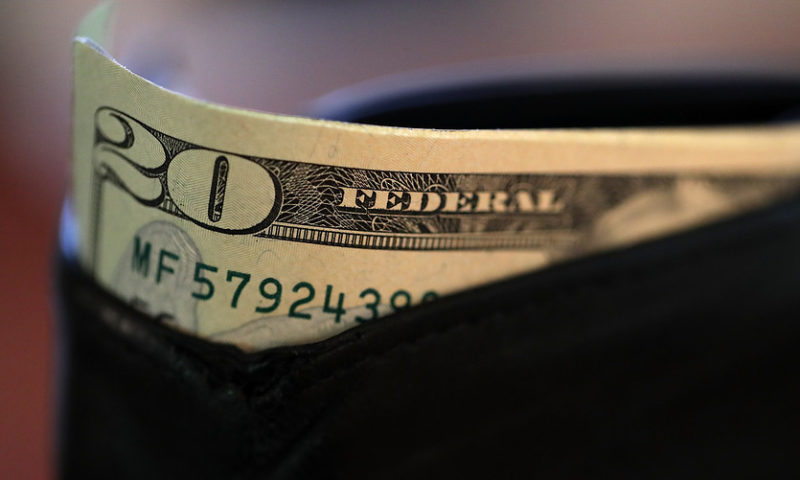The U.S. dollar regained some strength as investors cool their enthusiasm for stocks and other assets perceived as risky following a Monday rally.
Monday’s risk appetite had been fueled by better-than-expected economic data from China, which pushed global stocks and currencies perceived as riskier, such as emerging markets, higher. China’s Caixin services purchasing managers index for March is due at 9.45 p.m. Eastern on Monday, during Tuesday’s Asia session.
The ICE U.S. Dollar Index DXY, +0.14% was last up 0.2% at 97.396.
The U.S. economic calendar was light for Tuesday. February durable goods orders contracted by 1.6%, less than expected, while core capex orders for the same month slipped 0.1%.
The waning risk appetite and continued Brexit anxiety left the British pound GBPUSD, -0.4731% Australian dollar AUDUSD, -0.6188% and New Zealand dollar NZDUSD, -0.8963% the worst G-10 performers of the session in early trading.
For the Aussie dollar, Tuesday’s weakness appeared against the backdrop of better-than-expected economic data, including a jump in building approvals by 19.1%, where a 3.5% contraction was expected. The Reserve Bank of Australia left interest rates unchanged during its April meeting.
The Australian currency last bought $0.7072, down 0.5%.
In the U.K., Parliament again voted on alternative Brexit plans, and again none of the options managed to get a majority. The customs union proposal, which last week lost by six votes, on Monday lost by three.
Prime Minister Theresa May, whose own Brexit plan has been rejected three times by lawmakers, was holding a cabinet meeting on Tuesday in an effort to decide on the path ahead. Market participants said she could bring her deal to a vote for a fourth time.
“The risk of a national election appears to be growing as a way to break the logjam. It would be the third election in four years,” said Mark Chandler, chief market strategist and Bannockburn Global Forex.
Sterling last bought $1.3050 down from $1.3105 late Monday.
By extension, the euro EURUSD, -0.1962% similarly exposed to Brexit risk but also struggling with economic growth issues of its own, was also weaker. It last fetched $1.1202, compared with $1.1216

